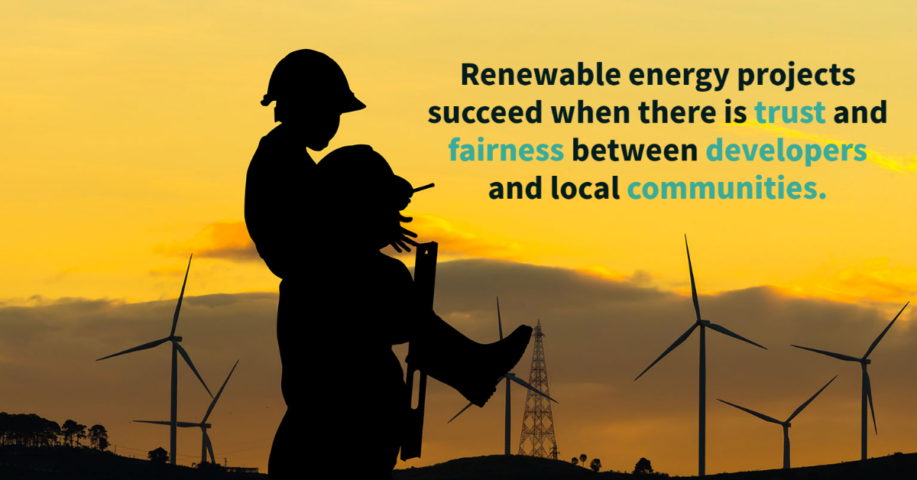Traditional Land of Wabanaki People/Fredericton— If developers, governments and utilities want to build renewable energy projects, they must first build a process that is fair, that citizens trust and in which they can participate and influence outcomes, particularly around siting.
That’s the topline conclusion of the Conservation Council’s year-long research into why renewable energy projects fail from public opposition despite the majority of Canadians being supportive of more wind and solar developments.
The case study, Why do wind energy projects fail?, released today, is built on in-person interviews with the people affected by a pair of wind energy projects in northern New Brunswick that were cancelled after citizens rallied against them. It looks at the specific factors that led to each project’s cancellation and offers recommendations to improve community acceptance of renewable energy projects.
The research found that projects have a better chance of success when there is early, sustained and consistent two-way communication with host communities by developers, and when government and utilities provide institutional support through best practice guidelines and evidence-based information about renewable energy.
Through at-times emotional interviews with local residents, developers and other stakeholders, the research found that the northern N.B. wind projects failed not because of NIMBYism, but because citizens didn’t feel involved or like they had a chance to have a say in things like how the burdens and benefits would be shared and where turbines would go within their own community.
The Conservation Council recommends the province establish an office of renewable energy to support developers with things like best practices guidelines for siting decisions, community benefits agreements and community engagement.
“We need more non-polluting electricity to fight climate change. Our research shows that the principles behind making that happen really aren’t too complicated: We have to be honest. We have to talk to each other. We have to share in the burdens and benefits,” says Dr. Louise Comeau, co-author of the report and director of the Conservation Council’s Climate Solutions program. “Fairness and trust are the currents through which community acceptance flows.”
Key links
Read the full report, Why do wind energy projects fail? The enduring effects of process and distributional unfairness, here: English | French
Read the executive summary here: English | French
Download presentation slides here: English | French
Watch our full webinar recording: English
Watch our promotional video: English | French
Social media graphics
Help us spread the word using our #amplify toolkit
Click the button below to send a tweet right now
#Fairness and #trust are the currents through which #community acceptance flows. See the lessons from @cc_nb’s year-long research into how developers, governments and utilities can give #renewable energy projects the best chance for success →
For more information or to arrange an interview, contact:
Jon MacNeill, Communications Director: jon.macneill@conservationcouncil.ca | 506.238.3539

